Chapter 2: The Masters of Metal
Eight world‑class producers, three generations, one pursuit: heaviness.
Navigate Chapters
The research engaged eight world-class producers representing different backgrounds and approaches to metal production. Their collective experience spans over three decades of metal, from its foundational sounds to its most technically advanced modern expressions (Figure 2.1).
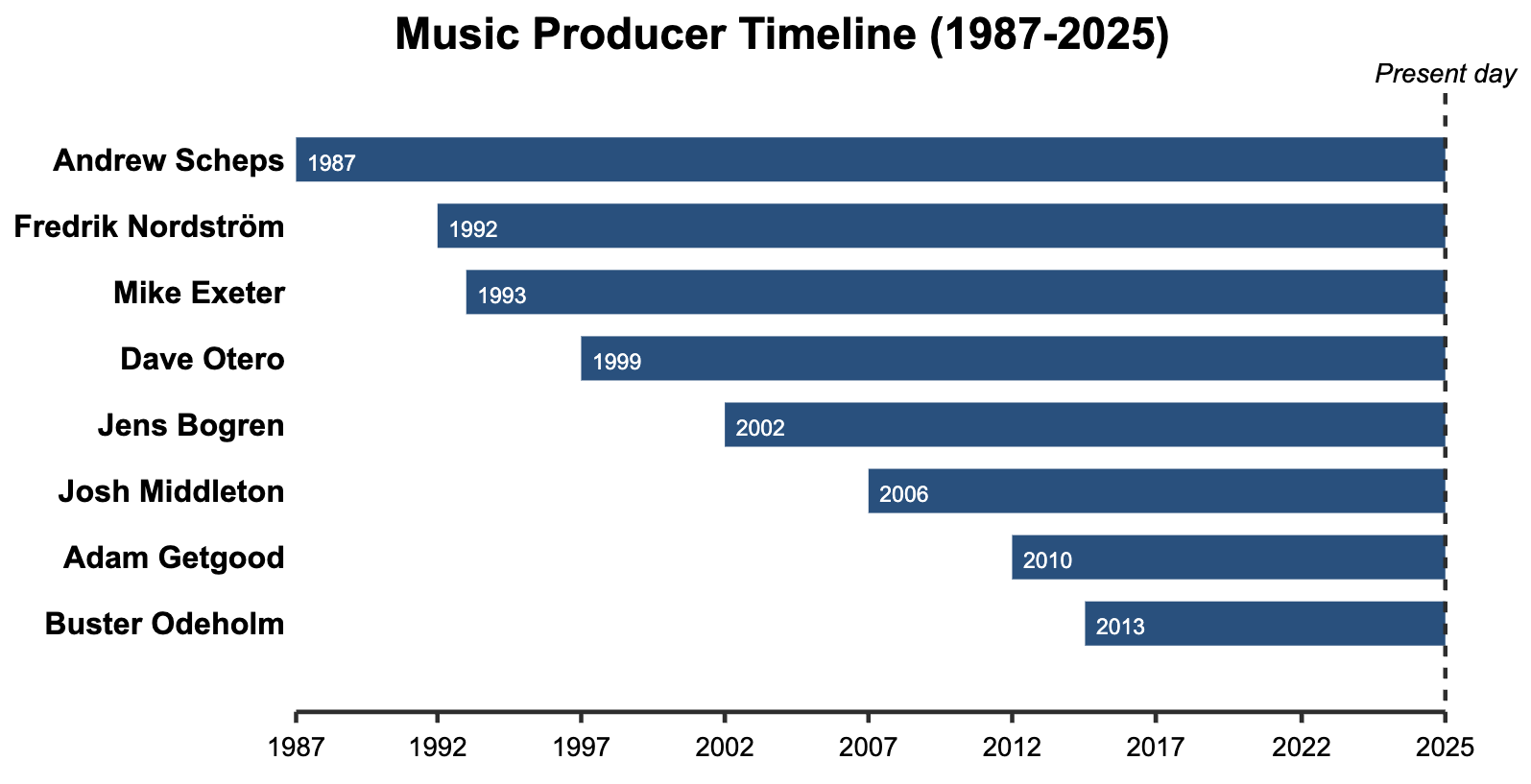
Jens Bogren (b. 1979)
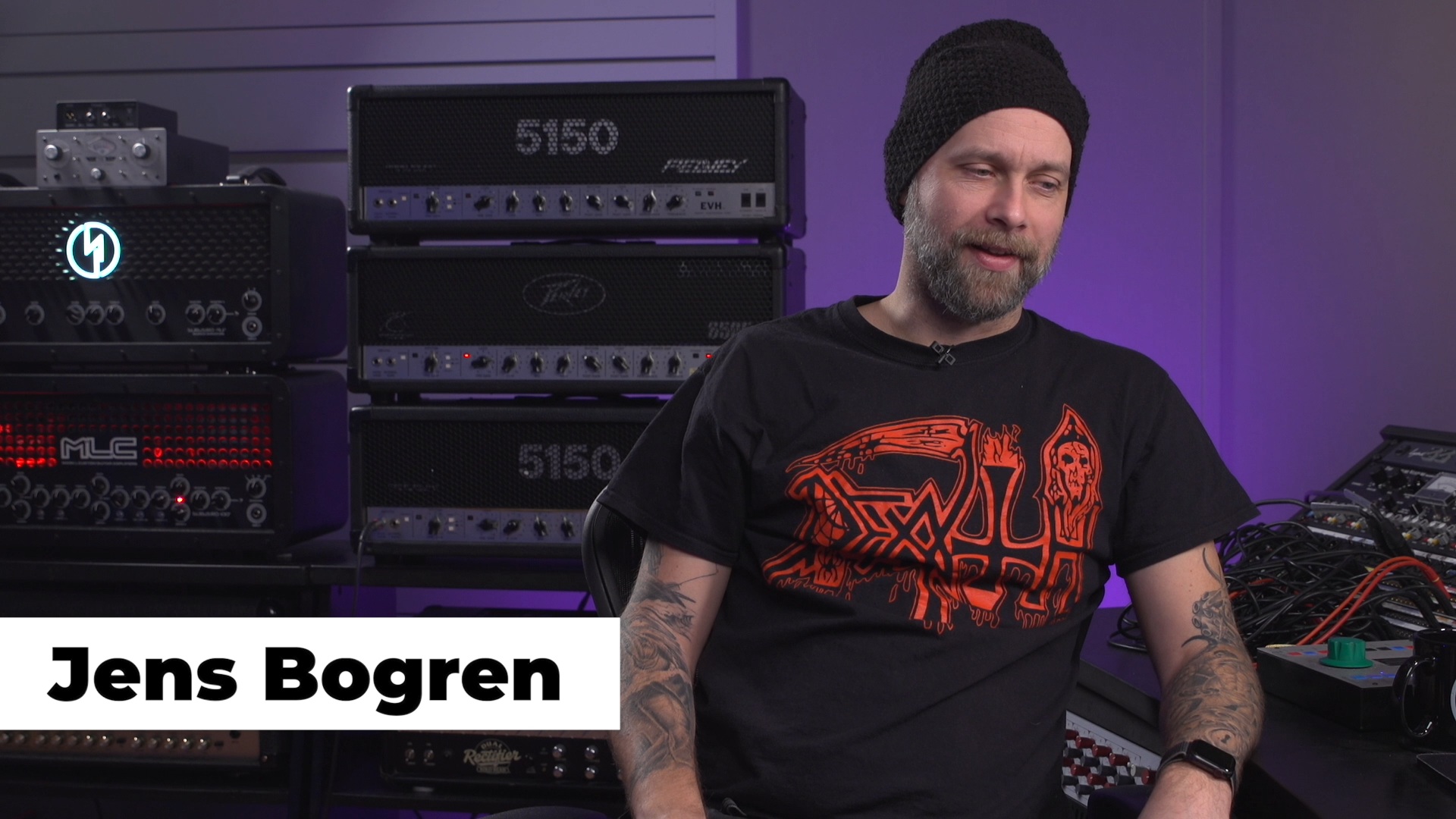
Jens Bogren is one of metal's most sought-after producers, with over 700 professional credits to his name. The founder of Sweden's Fascination Street Studios, Bogren has shaped the sound of modern metal through his work with a wide range of bands, including Opeth, Arch Enemy, At the Gates, Dimmu Borgir, and Amon Amarth. His notable productions include Opeth's Ghost Reveries (2005) and Watershed (2008), Amon Amarth's Twilight of the Thunder God (2008), and Kreator's Phantom Antichrist (2012).
Bogren's production philosophy centres on crafting a distinct sound for each band that aligns with their musical identity. While striving to maintain authenticity through minimal editing, he emphasizes expression and emotion above technical perfection. His technical approach balances digital precision with selective analogue hardware, particularly for bass and vocals.
Bogren occupies a distinctive position in our philosophical spectrum because he uniquely bridges naturalistic and hyperreal approaches with a scientifically informed and context-specific methodology that adapts to each project's needs.
Mike Exeter (b. 1967)
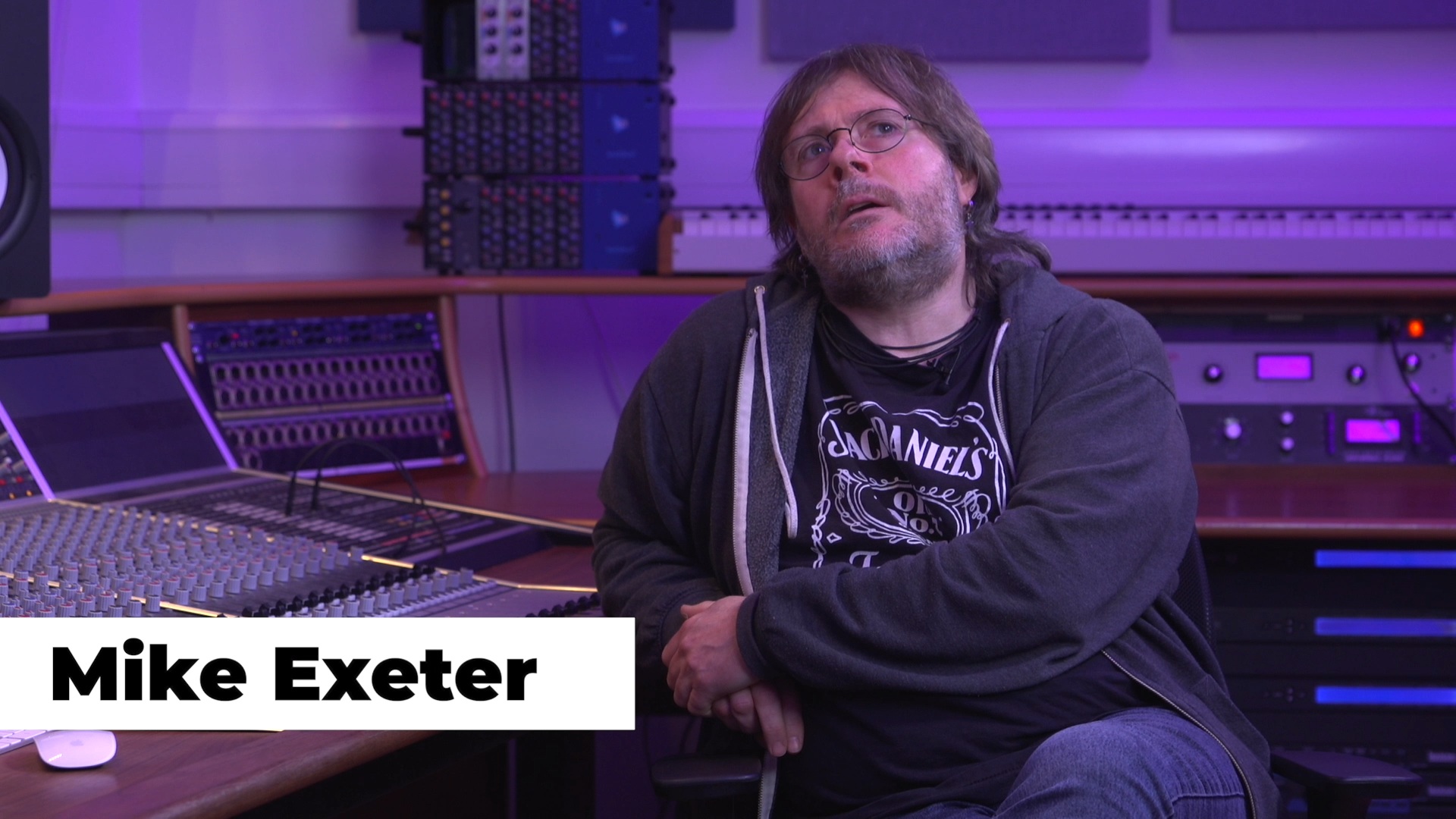
Mike Exeter represents the traditional school of metal production, shaped through his extensive work with genre pioneers Black Sabbath and Judas Priest. After beginning his career with black metal band Cradle of Filth in the late 1990s, Exeter formed a long-lasting relationship with Tony Iommi and Black Sabbath and contributed to their Grammy-nominated album 13 (2013). His credits also include Heaven and Hell's The Devil You Know (2009) as well as Judas Priest's Redeemer of Souls (2014) and Firepower (2018).
Exeter's engineering and production philosophy embodies the naturalistic approach that prioritizes the artist's vision over technological innovation. He focuses on arrangement, automation, and capturing the band's energy through collective songwriting and live recording techniques. While he has gradually embraced digital audio workstations, Exeter maintains that capturing sound at its source remains paramount, with technology serving as a tool for enhancing musical expression rather than replacing it.
His approach to heaviness relies on preserving the human element in performance. He uses automation to enhance rather than correct and maintains dynamic range in a genre that increasingly sacrifices it for sheer loudness. Exeter is perhaps the most traditionally-minded producer in our study, yet his results demonstrate that naturalistic approaches can be highly effective in creating authentic heaviness.
Adam "Nolly" Getgood (b. 1987)
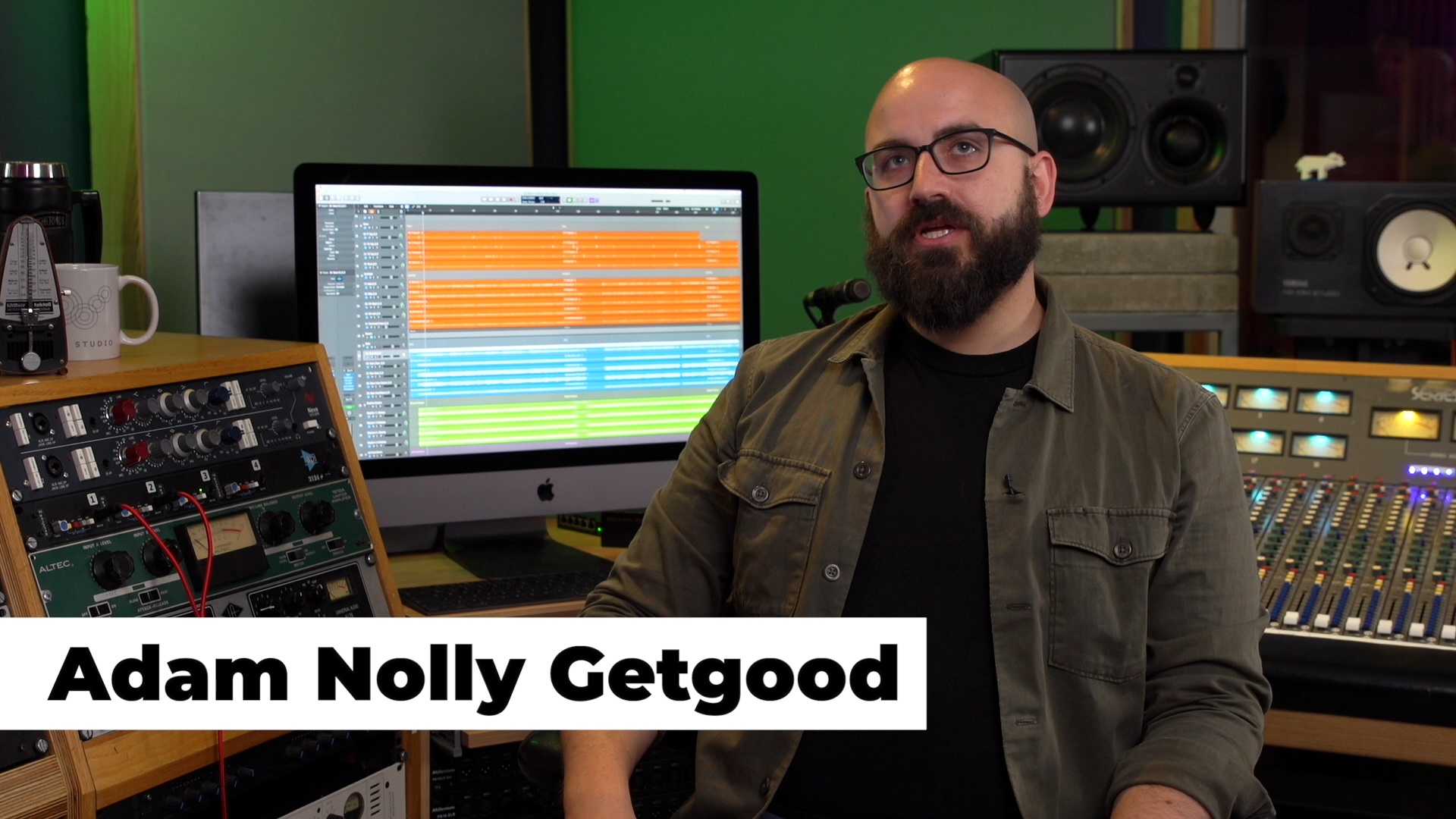
Adam Getgood represents the new generation of metal producers who balance musical sensibility with technical innovation. Originally known as the bassist for progressive metal pioneers Periphery, Getgood co-produced several of their albums, including the Grammy-nominated Periphery III: Select Difficulty (2016). His production credits extend to influential progressive and technical metal acts, including Animals as Leaders' The Joy of Motion (2014), Devin Townsend Project's Transcendence (2016), and Architects' Holy Hell (2018).
Working entirely in the box, Getgood harnesses digital technology while maintaining a performance-oriented approach. His production philosophy is artist-centred; he focuses on supporting bands in realizing their vision rather than imposing his own sonic signature. This balanced approach places him in the hyperreal camp technically but with a musicality that transcends pure technical perfection.
Getgood's approach to heaviness often builds on the "meta-instrument" concept (see Chapter 7) used to create a cohesive sonic entity where the guitars and bass work with the drums as a unified force rather than competing elements. His background as a bassist gives him unique insight into low-end management which is a central component of modern heavy production.
Josh Middleton (b. 1985)
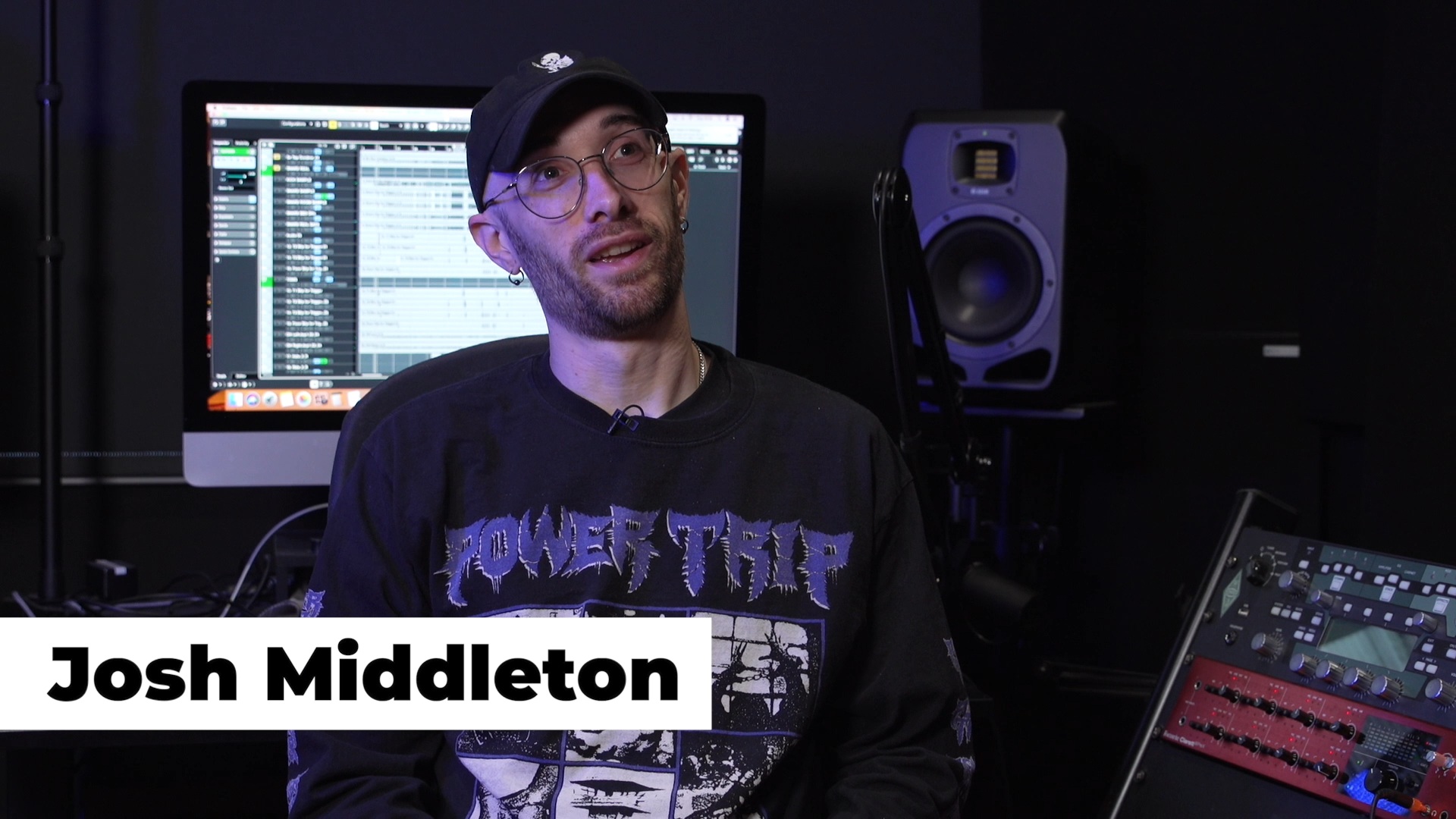
Josh Middleton represents the musician-producer perspective in our study. Best known as the founding guitarist/vocalist of British thrash metal band Sylosis and former lead guitarist for Architects, Middleton's production credits include Sylosis' Cycle of Suffering (2020) and A Sign of Things to Come (2023), as well as co-production on Architects' Holy Hell (2018) and For Those That Wish to Exist (2021).
As a relatively recent entrant to the world of professional production, Middleton works predominantly in the box. His approach to metal production reflects his background as a guitarist, with particular attention to guitar tone. His modern production methodology includes a strong preference for pre-made drum samples, often completely replacing recorded drum shells to align with his aesthetic vision.
Middleton takes an unconventional approach to engineering, openly prioritizing visual audio tools within digital audio workstations over traditional techniques. This visual approach to tonal shaping and frequency balancing reflects the newer generation's comfort with digital interfaces as primary production tools rather than mere recording platforms.
In our philosophical spectrum, Middleton leans toward hyperreal production techniques while maintaining a performer's sensibility about what creates an emotional impact in metal music. His dual perspective as both performer and producer provides valuable insight into how production choices affect the listener's experience of heaviness.
Fredrik Nordström (b. 1967)
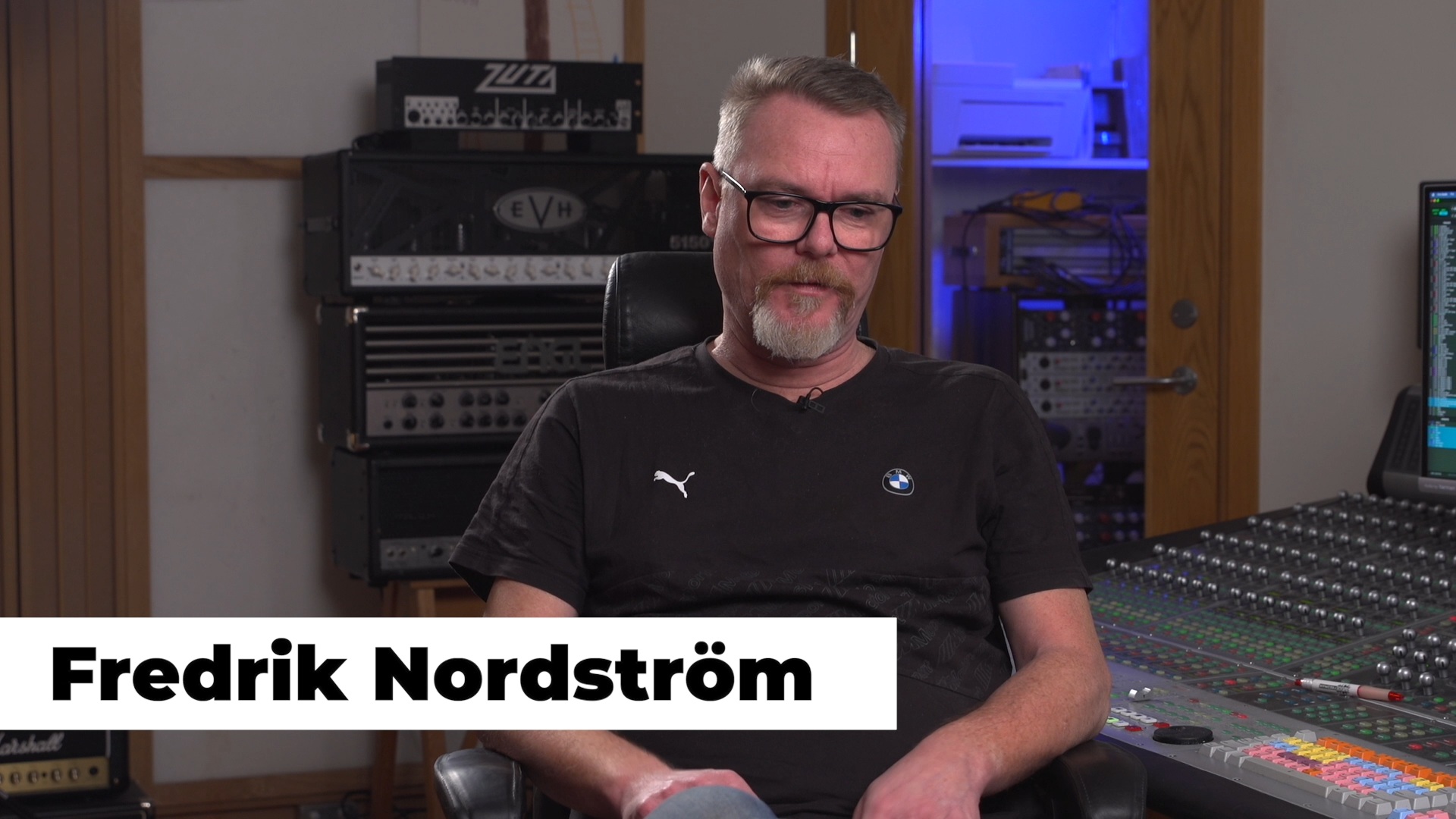
Fredrik Nordström is one of the most influential figures in the development of Scandinavian metal production. As the founder of Studio Fredman in Gothenburg, Nordström played a pivotal role in shaping the "Gothenburg Sound" that defined Swedish melodic death metal. His production credits include genre-defining works with In Flames, At the Gates, Dark Tranquility, and Arch Enemy, as well as significant releases from bands like HammerFall, Dimmu Borgir, and Opeth's acclaimed Blackwater Park (2001).
Nordström's production philosophy rests on two key principles: supporting the band's vision rather than imposing his own sonic signature and adhering to a "less is more" approach to processing. While his background in pop music inevitably influenced Swedish melodic death metal's accessibility, he prioritizes capturing each band's unique personality. Despite working in the box, his production style largely replicates his earlier analogue workflow by using only essential plugins and favouring minimal processing.
Nordström represents the naturalistic school in our study. He prioritizes performance capture over technical manipulation, yet his innovations have paradoxically enabled some of the techniques now employed in hyperreal production approaches.
Buster Odeholm (b. 1992)
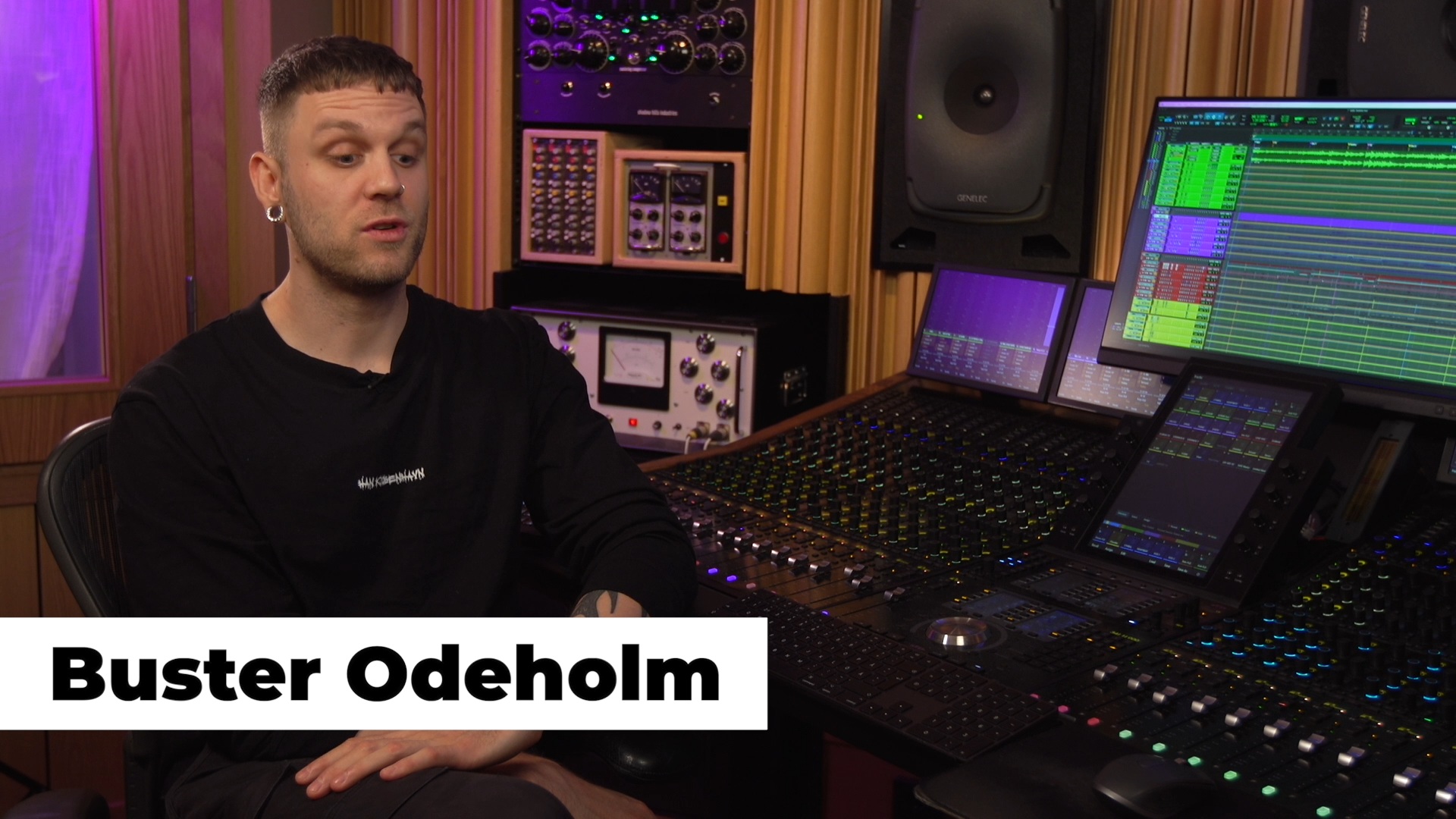
Buster Odeholm represents the cutting edge of hyperreal metal production. As the youngest producer in our study, the Swedish multi-instrumentalist has quickly established himself as a leading figure in extreme metal production through his work with his own bands (Humanity's Last Breath and Vildhjarta) and productions for artists like Born of Osiris, Oceano, and Darkane.
Unlike many metal producers who avoid imposing a signature sound, Odeholm deliberately cultivates a "larger-than-life" production style. Technically, Odeholm embraces the most advanced aspects of digital production, including phase alignment, extensive sample reinforcement, and meticulous editing to create a level of precision that exceeds human performance capabilities. His approach to the "meta-instrument" concept (see Chapter 7) reaches its logical extreme, treating guitars, bass, and drums as components of a unified sonic entity rather than separate instruments.
Odeholm is the clearest representative of the hyperreal philosophy in our study, who deliberately pursues an engineered presentation of heaviness that transcends natural performance limitations. His quick rise to prominence speaks to the growing influence of this production aesthetic in contemporary extreme metal.
Dave Otero (b. 1981)
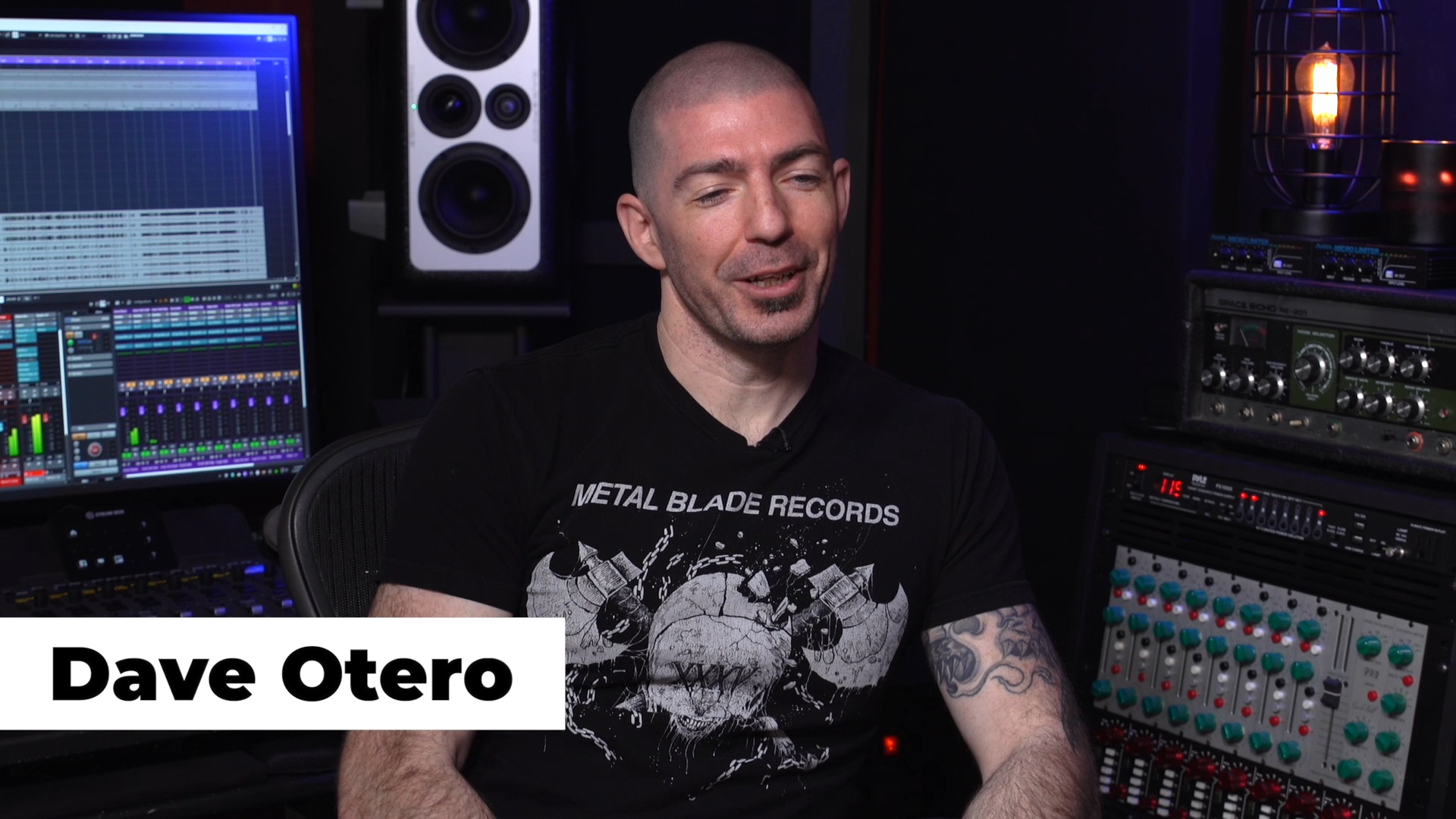
Dave Otero has established himself as a specialist in technical death metal and doom metal production through his work at Flatline Audio in Denver. His credits include every Cattle Decapitation release since 2012 and all of Khemmis's albums, as well as acclaimed technical death metal productions for Allegaeon and Archspire, whose albums Relentless Mutation (2017) and Bleed the Future (2021) have earned him widespread recognition.
Otero's approach to metal production prioritizes the individuality of each band rather than imposing a signature sound. While he follows consistent workflow principles, he avoids rigid templates because he seeks to develop both artistically and technically with each project.
Compression forms the cornerstone of Otero's sound. He views compressors less as tools for controlling dynamics but as devices for achieving specific sonic qualities like air, bloom, or snap, especially in drum sounds. His technique often involves multiple compressors for different characteristics, blended through faders as needed. To enhance sonic density and consistency, he also relies on console and tape emulation to add warmth and saturation to his naturally clean, precise sound.
In our philosophical spectrum, Otero occupies a middle ground but leans towards hyperrealism. He employs modern techniques with restraint and always in service of the musical context rather than technical perfection for its own sake.
Andrew Scheps (b. 1969)
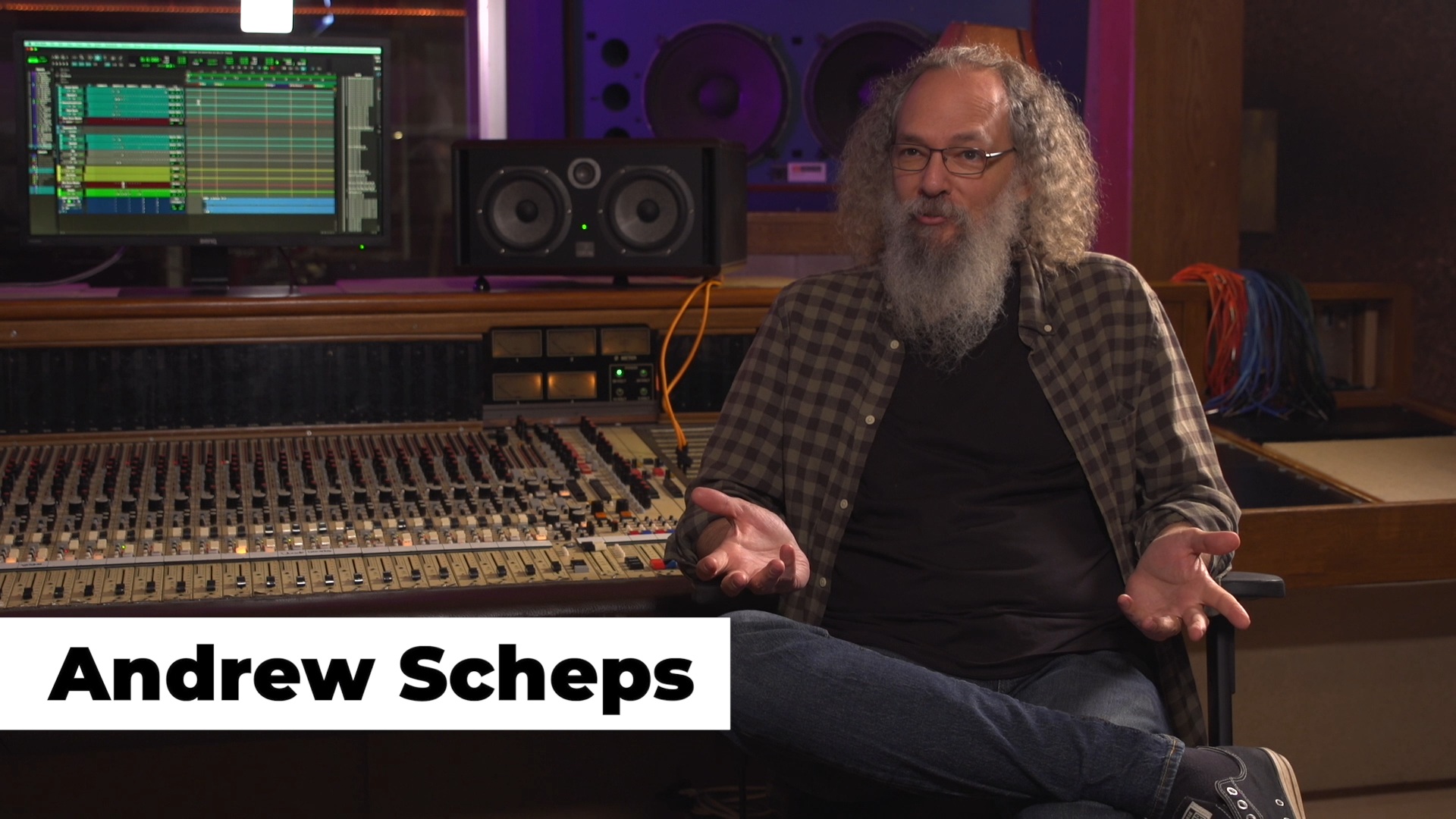
Andrew Scheps brings the broadest genre experience to our study as a Grammy-winning engineer who has worked across both pop and rock, as well as metal. His metal credits include engineering Black Sabbath's 13 (2013) and Metallica's Death Magnetic (2008), both produced by Rick Rubin. Beyond metal, his extensive client list includes Adele, Red Hot Chili Peppers, and Michael Jackson.
Scheps approaches mixing from an artist-centred philosophy, using rough mixes as a tool to understand and engage with the band's vision rather than imposing his own preferences. However, he acknowledges that iconic bands like Metallica and Black Sabbath carry sonic expectations that must be honoured: "You're not going to not put a delay on Ozzy's vocal; he's never not had a delay".
Though primarily a mixing engineer rather than a producer, Scheps plays an influential role in shaping the sound of artists' songs by bridging the gap between technical engineering and creative production. His broad perspective across genres provides valuable context for understanding heaviness as both a metal-specific quality and a universal sonic characteristic.
Endnotes
- Tip: Complete credits can be accessed on Discogs (www.discogs.com). ↩
